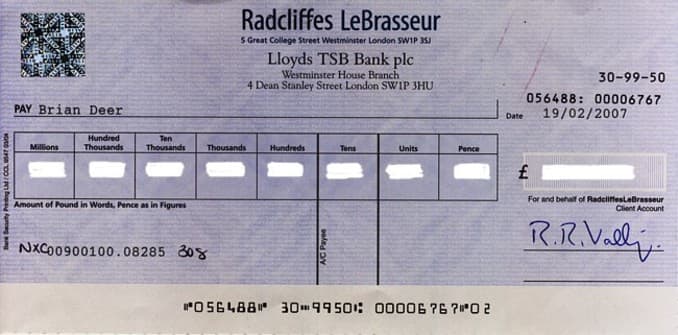
December 2014
Disgraced ex-doctor fails four times to gag media with “public relations” lawsuits
To harass journalists and rally public relations advantage, discredited former doctor Andrew Wakefield brings lawsuits he eventually loses. The most recent was in Texas
Fourth case: defendants’ introduction
Get Deer’s book: The Doctor Who Fooled the World
Later, after losing before two different judges in the Austin district courts, Wakefield appealed and lost before three judges in the third Texas court of appeals. In December 2014, despite bragging that he would appeal to the Texas supreme court, he quietly abandoned the action.
In Travis County, Texas
In January 2012, Dr. Andrew Wakefield was named by Time magazine as one of the “Great Science Frauds” of modern history. In April 2011, the New York Times described him as “one of the most reviled doctors of his generation.” In 2009, a Special Master presiding over vaccine litigation in the United States Court of Federal Claims recognized that Wakefield’s 1998 paper in The Lancet medical journal, which suggested a possible link between the lifesaving Measles, Mumps, and Rubella (“MMR”) vaccine and the development of autism in children, was considered a “scientific fraud.”
The Lancet has now fully retracted Wakefield’s paper, and its editor has stated publicly that the paper was “utterly false” and that Wakefield “deceived the journal.” Wakefield’s home country’s medical board, the United Kingdom’s General Medical Council (“GMC”), convicted him in 2010 of multiple charges of “serious professional misconduct,” including “dishonesty” and “unethical conduct.” It further held that his misconduct had been so severe and extensive that the only punishment that would adequately protect the public from him was the permanent revocation of his medical license. As the New York Daily News put it, “Hippocrates would puke.”
Now the plaintiff in this frivolous libel case, Dr. Wakefield has sued one of the most prestigious medical journals in the world, the BMJ, its editor-in-chief, Dr. Godlee, and one of the most respected investigative journalists in the United Kingdom, Brian Deer. Wakefield’s claims challenge a series of articles and editorials in the BMJ in January 2011 entitled “Secrets of the MMR Scare.” There is nothing false about the series. Deer’s reporting won him his second British Press Award, the U.K.’s equivalent of the Pulitzer Prize. And the BMJ’s editorial commentary merely stated what people familiar with the controversy already understood: Wakefield’s research was a “fraud.”
READ HOW DEER’S WAKEFIELD
INVESTIGATION WAS CHECKED
As Dr. Wakefield presses this case, he travels the world raising money for “The Dr. Wakefield Justice Fund.” It is a cynical scheme, but not a new one for Wakefield. In recent years, he has filed virtually identical claims against Deer and other U.K. publishers in various proceedings in London. In one of the cases, The Honorable Mr. Justice Eady, chief judge of the High Court’s specialized media division, criticized Dr. Wakefield’s litigation tactics:
[Dr. Wakefield] wished to use the existence of libel proceedings for public relations purposes, and to deter critics, while at the same time isolating himself from the ‘downside’ of such litigation, in having to answer a substantial defence of justification.
Indeed, Dr. Wakefield chose to file suit in Texas after BMJ’s outside counsel in the U.K. warned him that he would be forced to post a bond with the High Court if he filed this obviously vexatious case in London.
Get Deer’s book: The Doctor Who Fooled the World
Dr. Wakefield may have figured that, in Texas, there would be little “downside” to filing frivolous libel claims and using the suit to raise money and chill the free speech of his critics. Not so anymore. To avoid dismissal under our State’s new anti-SLAPP statute, Dr. Wakefield must submit evidence to support each essential element of his libel claims. He cannot do this for several reasons. First, the statements he challenges are true. The GMC findings against him— numerous proven charges of dishonesty and research misconduct—are binding in this case, and they leave no room for Wakefield to argue that he was defamed by Defendants’ reporting and editorial comment. During the GMC proceeding, Dr. Wakefield’s own counsel admitted that the charges against him amounted to an allegation of “fraud.” And Defendants have overwhelming additional evidence to establish the truth of the challenged statements.
Moreover, even if Dr. Wakefield could produce evidence of falsity and overcome Defendants’ other defenses, his claims would still fail. He is indisputably a public figure, and therefore must prove that Defendants acted with actual malice—that they knew what they were publishing was false. Again, this is an impossible burden for Dr. Wakefield. The reporting he challenges was the product of years of investigation by one of the United Kingdom’s best reporters, exhaustively sourced, then subjected to multiple editorial reviews, including an external review by an expert pediatrician. Through extensive discovery, including the production of thousands of pages of documents and the deposition of Brian Deer and the BMJ, Dr. Wakefield has had a full and fair opportunity to fish for evidence of actual malice. It was an expedition doomed to fail, and now it has. There is no falsity and no malice to be discovered.
Because Dr. Wakefield cannot satisfy his burden under the anti-SLAPP statute, his claims must be dismissed, and he must be ordered to pay Defendants’ reasonable attorneys’ fees and costs in defending this action. Moreover, given Dr. Wakefield’s long history of frivolous libel litigation, the Court should award additional sanctions to deter Dr. Wakefield from continuing to use the legal system to harass and intimidate journalists covering this matter of paramount public concern.
Case closed 18 December 2014
Andrew Wakefield v Channel 4 Television Corporation, Twenty Twenty Productions Ltd & Brian Deer
The meanings of Deer’s TV investigation. What the Channel 4 Dispatches programme said about the now-former doctor Wakefield
English judgments
4 November 2005. Mr Justice Eady. Court orders Wakefield to put up or shut up in “public relations” gagging lawsuit
1 November 2006. Mr Justice Eady. Court orders Wakefield to produce unredacted medical records of Lancet MMR research children
21 December 2006. Mr Justice Eady. Court orders Wakefield to turn over documents from the General Medical Council’s investigation
2 January 2007. Andrew Wakefield files a notice of discontinuance with the court, and admits liability to pay the defendants’ costs

READ HOW DEER’S WAKEFIELD
INVESTIGATION WAS CHECKED

Get Deer’s book: The Doctor Who Fooled the World
